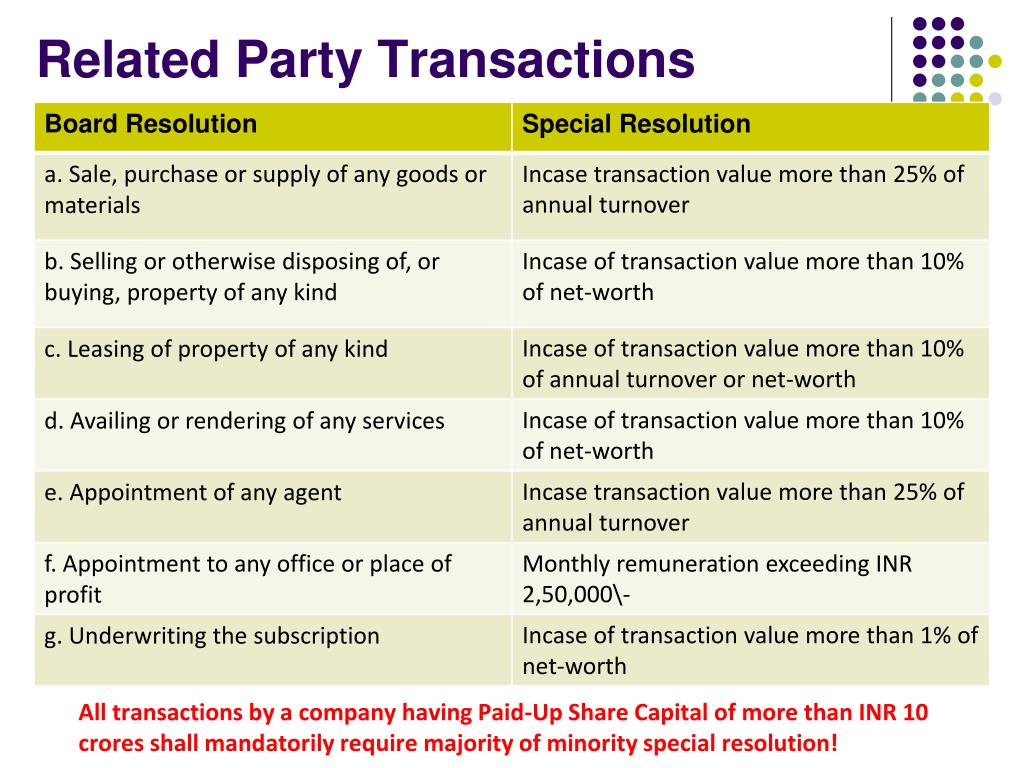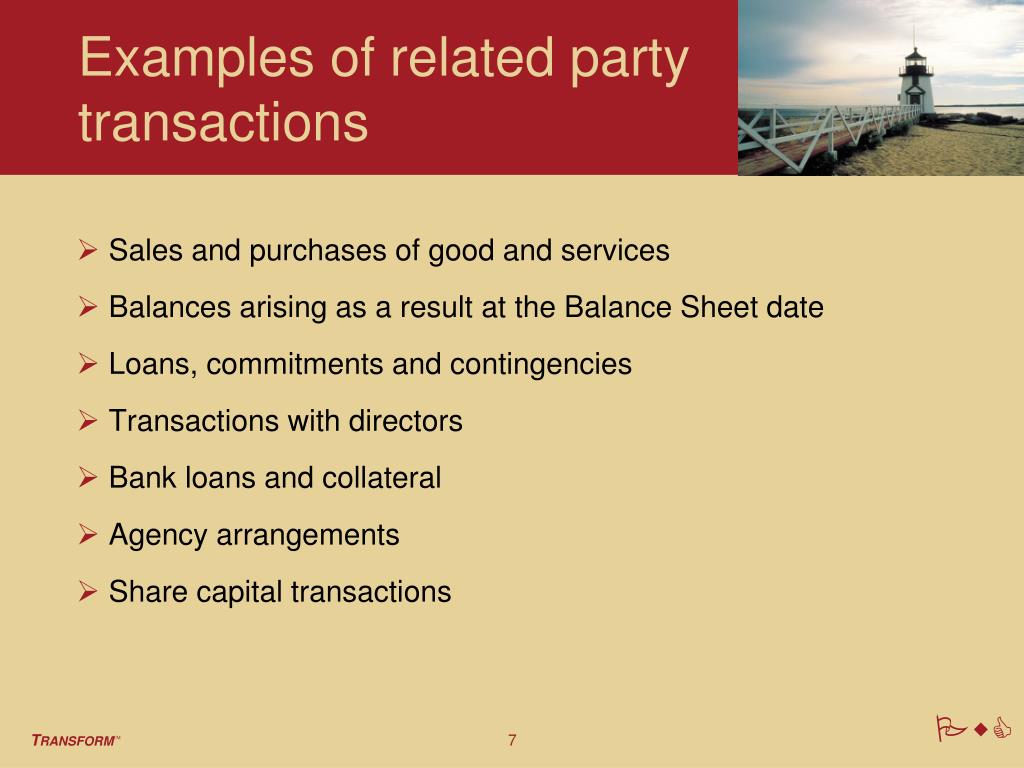

#Related party transactions professional#
Professional skepticism in related party transactions is a very important phenomenon that needs to be withheld when it comes to designing procedures and protocol for related party transactions.Īs a matter of fact, it can be seen that it calls for auditors to remain vigilant and alert about any undisclosed related party transactions, as well as maintaining skepticism when it comes to identifying material misstatements in the transactions. Audit Skepticism in Related Party Transactions Secondly, they are also supposed to conclude if there is fair representation of the related party transactions in the financial statements, and if the disclosures meet applicable financial reporting framework. Firstly, they are supposed to recognize fraud risk factors that may lead to material misstatement of the accounts, owing to the act of fraud itself. When auditing related parties, the fundamental aspects that should be considered by auditors are two-fold. Critically analyzing presentation of related-party transactions in the financial statements Objectives to be considered when designing Audit Procedure for Related Party Transactions.Conducting interviews with accounting personnel that is responsible for reported related-party transactions in the company’s financial statements.The need to test the overall viability of related party transactions, and subsequently identifying them to be coded in the ERP system.

Therefore, specific audit procedures that target related-party transactions in this regard include the following specific steps: Related article Audit Procedure for Provision: Procedures, Risks, and More Bank statements and transaction records, which comprise of intercompany wires are also helpful because they provide certain automated clearing house (ACH) transfers, as well as check payments.It is also useful to consider disclosures from board members, as well as senior executives pertaining to the existing ownership of other entities.Subsequently, they also obtain minutes from the board of directors’ meetings, especially in the cases when the board discusses significant business transactions.Firstly, auditors are required to obtain a list of the company’s current related parties and associated transactions.Certain examples pertaining to related party transactions can be as follows: The audit procedures for related party transactions are highly important to be considered because of the fact that there is an underlying potential for undisclosed related party transactions that need to be accounted for by auditors to look for probable incidents of fraud. Audit Procedure for Related Party Transactions Therefore, it becomes the responsibility of the auditors to take these issues into account so that there are no red flags for that matter. The reason that these transactions need to be closely monitored lies on the realms of ensuring that there are no kickbacks, or uncalled for advantages taken in this regard. There is a need to ensure that related party transactions are properly adhered to because it is important for the stakeholders to be aware of the existing negotiations that might take place between an entity and its relevant parties.Īlso, the overall scope of a potential collaborative behavior in this regard is also highly likely, as a result of which it becomes important to notify the stakeholders of the affiliation, so that any red flags can subsequently be identified.Īdditionally, it can be seen that related party transactions mainly involve contracts for goods and services that are mainly priced at lesser amount, as compared to the transactions that take place between unrelated third parties.

Importance of Audit Procedures for Related Party Transactions Related Parties Transactions are transactions that take place within an organization that takes place with other organizations that are directly, or indirectly related to the organization in question.Īs a matter of fact, related party transactions might include transactions between a parent entity and its subsidiaries, subsidiaries of a common parent, an entity, and related entities for the benefits of stakeholders (mainly employees), an entity and the principal owners and managers, and other affiliated entities.


 0 kommentar(er)
0 kommentar(er)
